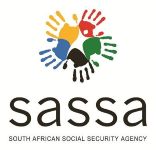Wednesday, March 12th, 2025
But budget news is not all that good
Grants to increase

THERE was good news today for social grant recipients when Finance Minister Enoch Godongwa announced during his budget speech that Sassa grants will increase from April 2025.
The only people to miss out is those receiving the Social Relief of Distress (SRD) grant, which will not increase.
Godongwana said the number of social grant beneficiaries – excluding those receiving the SRD grant – is expected to rise to some 19 million in 2025/26 and 19.3 million in 2027/28 due to a growing population of older persons.

The grant increases this year include:
Old age grant from R2185 to R2315
War veterans from R2205 to R2335
Disability grant from R2185 to R2315
Foster care from R1180 to R1250
Care dependency grant from R2185 to R2315
Child support grant from R530 to R560
The grant-in-aid from R530 to R560
Meanwhile, Godongwana, also announced that value-added tax (VAT) will be raised by 0.5 percentage points in each of the next two years, which will shoot VAT up to 16% in the 2026/27 financial year.
“These have to do with the government properly fulfilling its service delivery mandate. After careful consideration, the government has decided to fund services like health, education, transport and security.
“Deferring the funding of these sectors further would compromise the government’s ability to meet its constitutional obligations to the people,” the Minister said.
The first 0.5 percentage point increase in the VAT rate will take effect on 1 May 2025 and the second will take effect on 1 April 2026.
He explained that government thoroughly examined alternatives to raising the VAT rate.
“We weighed up the policy trade-offs involved, including increases to corporate and personal income taxes. Increasing corporate or personal income tax rates would generate less revenue, while potentially harming investment, job creation and economic growth.
“Corporate tax collections have declined over the last few years, an indication of falling profits and a trading environment worsened by the logistics constraints and rising electricity costs. Furthermore, South Africa’s corporate income tax collections are already higher than most of our peer countries.
“On the other hand, an increase to the personal income tax rate would reduce taxpayers’ incentives to work and save. Our top personal income tax rate and our personal income tax collections as a percentage of GDP are far higher than those of most developing countries. Increasing it is therefore not feasible,” he said.
The VAT system currently zero rates 21 essential food items in an effort to make them more affordable for lower-income households.
Government has proposed to extend the list of zero-rated basic foods to mitigate the effect of the VAT rate increases.
“From 1 May 2025, zero rating will be extended to include edible offal of sheep, poultry, goats, swine and bovine animals; specific cuts such as heads, feet, bones and tongues; dairy liquid blend; and tinned or canned vegetables
“Other tax proposals include no inflation adjustments to medical tax credits, above-inflation increases on alcohol and tobacco excise duties, and diesel refund relief for primary sectors,” the Minister said.
Personal income tax brackets and rebates will not be adjusted for inflation in 2025/26.
“The personal income tax proposals are effective from 1 March 2025 and expected to raise revenue of R19.5 billion. No changes to medical tax credits are proposed – these will remain at R364 per month for the first two beneficiaries and at R246 per month for the remaining beneficiaries,” the 2025 National Treasury Budget Review said. (Source: SAnews.gov.za)
